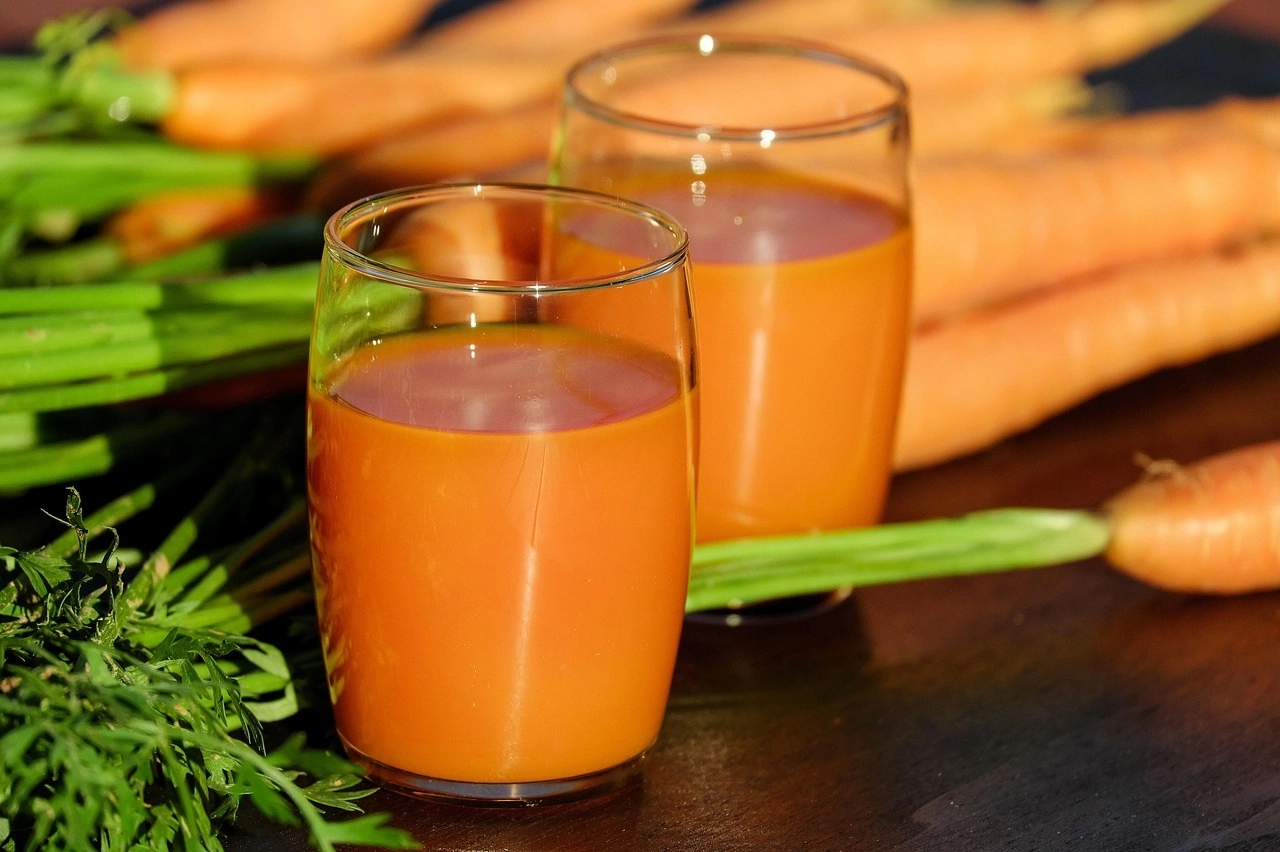Carrot juice, derived from whole carrots, is more than just a refreshing drink. It’s a concentrated source of vital nutrients, offering an impressive array of health advantages. This golden liquid is notably rich in potassium, vitamin C, and provitamin A.
According to insights from Healthline, incorporating carrot juice into a balanced diet, when consumed responsibly, can significantly enhance overall well-being. Its dense nutrient profile makes it a standout choice for health-conscious individuals.
A Deep Dive into Carrot Juice’s Nutrition
A single 236 ml (1 cup) serving of carrot juice packs a substantial nutritional punch.
Essential Vitamins and Antioxidants
This serving provides over 250% of the daily recommended intake for Vitamin A, primarily in the form of beta carotene. Beyond this, it supplies ample amounts of Vitamin C, Vitamin K, and potassium. Furthermore, carrot juice is brimming with powerful carotenoids, including beta carotene, lutein, and zeaxanthin. These compounds function as potent antioxidants.
They are crucial for shielding your cells from damage caused by free radicals, which are unstable molecules linked to cellular aging and various chronic diseases.
1. Vision Support: A Bright Future for Your Eyes
Carrot juice is exceptionally renowned for its positive impact on eye health.
Boosting Visual Acuity
It stands as one of nature’s richest sources of beta carotene. Your body efficiently converts this nutrient into Vitamin A, an absolutely essential component for maintaining healthy vision. Numerous studies have consistently demonstrated a correlation between increased intake of provitamin A-rich fruits and vegetables and a reduced risk of blindness and common age-related eye conditions.
Retinal Protection
Moreover, carrot juice contains lutein and zeaxanthin. These powerful antioxidants specifically accumulate within the retina. Their presence is thought to help mitigate the risk of age-related macular degeneration (AMD), a leading cause of vision loss in older populations.
2. Immunity Boost: Fortifying Your Defenses
The diverse vitamin profile of carrot juice plays a key role in strengthening your body’s immune system.
Shielding Immune Cells
Carrot juice is generously supplied with Vitamins A, C, and B6. These vitamins work synergistically to enhance immune function. They actively protect immune cells from damage and support their optimal performance. Research has specifically linked a deficiency in Vitamin B6 to compromised immune responses, underscoring the importance of including this nutrient in your diet.
3. Potential Anticancer Properties
Preliminary scientific investigations suggest that certain compounds within carrot juice may possess anticancer potential.
Inhibiting Cellular Growth
Laboratory and animal studies indicate that various bioactive compounds in carrot juice, such as beta carotene, lutein, and polyacetylenes, might inhibit the growth of specific cancer cells. While these findings are promising and warrant further exploration, it is crucial for experts to emphasize that more extensive human research is necessary. Carrot juice should never be considered a standalone treatment or replacement for established cancer therapies.
4. Blood Sugar Regulation Support
Certain varieties and forms of carrot juice show promise in aiding blood sugar management.
Glycemic Index and Inflammation
Animal studies have indicated that fermented and purple carrot juices may particularly improve blood sugar regulation and reduce inflammation. Even regular carrot juice possesses a low glycemic index (GI). This measurement indicates how quickly a food can elevate blood sugar levels. Consequently, carrot juice offers a healthier alternative to many high-GI fruit juices. However, moderation remains essential, even with low-GI options.
5. Skin Health Promotion: Achieving a Radiant Complexion
Carrot juice contributes significantly to maintaining youthful and glowing skin.
Collagen Production and UV Defense
It provides a good amount of Vitamin C, a nutrient fundamental for collagen production. Collagen is the primary protein responsible for skin elasticity and firmness. Beyond collagen, the abundant beta carotene acts as a natural protectant, offering defense against harmful UV radiation. This combination helps maintain healthy, resilient skin and contributes to a more radiant appearance.
6. Cardiovascular Benefits: A Healthy Heart Ally
The potassium content in carrot juice makes it a valuable addition for cardiovascular well-being.
Blood Pressure and Oxidative Stress
The potassium found in carrot juice actively supports healthy blood pressure levels. Studies consistently show that a diet rich in potassium can help guard against hypertension and significantly reduce the risk of stroke. Furthermore, the antioxidants present in the juice contribute to reducing oxidative stress throughout the body. Lowering oxidative stress is a key factor in mitigating risk factors associated with various heart diseases.
7. Liver Function Support
Emerging evidence suggests that carrot juice can offer protective effects for the liver.
Battling Fatty Liver Disease
The carotenoids within carrot juice have been linked to potential protection against nonalcoholic fatty liver disease (NAFLD). Animal studies have demonstrated that regular consumption of carrot juice can lead to a reduction in markers of liver inflammation. While these results are encouraging, human studies are still required to fully confirm and elucidate these benefits for liver function.
8. Enhanced Digestion
Carrot juice plays a role in supporting a smooth and efficient digestive system.
Fiber, Hydration, and Gut Health
According to insights from The Times of India, the natural fiber and water content in carrot juice are beneficial for promoting healthy digestion. These components work together to help prevent constipation by keeping the digestive system adequately hydrated and ensuring smooth bowel movements. This contributes to overall gut comfort and digestive regularity.
Important Considerations for Consumption
Despite its numerous advantages, it’s crucial to consume carrot juice in moderation as part of a varied and balanced diet. Excessive intake can lead to carotenemia, a harmless condition characterized by a yellow-orange discoloration of the skin due to an overload of beta carotene. While benign, it serves as a visual reminder to balance intake.
Furthermore, carrot juice should serve as a complement to, not a replacement for, a diet rich in whole fruits and vegetables, which provide essential fiber and a broader spectrum of nutrients.








